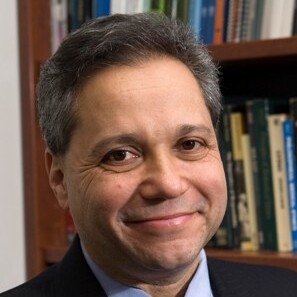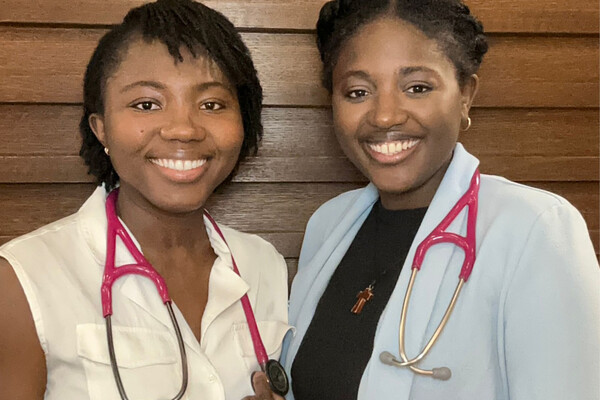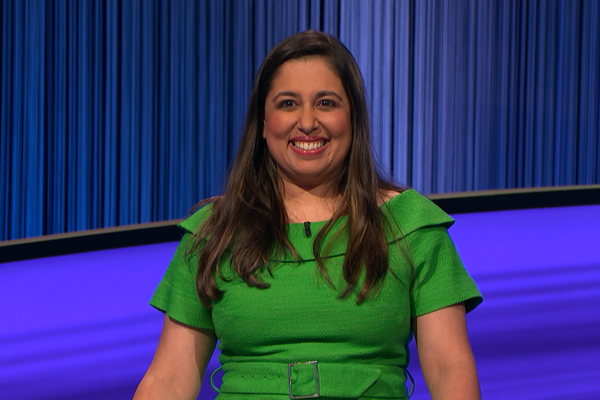Meeting Grand Challenges: Peter Singer, MD’84, PGME’87

Peter Singer, MD’84, PGME’87 is well known around the world for his creative solutions to some of the most pressing global health challenges. Dr. Singer is Chief Executive Officer of Grand Challenges Canada, Director of the Sandra Rotman Centre at the University Health Network and Professor of Medicine at University of Toronto. Along with Dr. Abdallah Daar, he co-authored The Grandest Challenge: Taking Life-Saving Science from Lab to Village.
Dr. Singer became the inaugural Chair in Bioethics in the Joint Centre for Bioethics in 1997, which became one of the leading bioethics centres in the world, spanning the spectrum of bioethics from theory to practice. He was appointed an Officer of the Order of Canada in 2011 for his contributions to health research and bioethics, and for his dedication to improving the health of people in developing countries.
I came to realize that the rigor with which we approach scientific problems was so much greater than the rigor with which we approach the human problems.
What is your most formative memory of your time as a student at U of T?
A very powerful memory was when I was doing my internship in the 1980’s and we were caring for a young woman who was dying of cervical cancer. At that time, there was no systematic way to communicate with her family about whether she should be resuscitated if her heart stopped. I came to realize that the rigor with which we approach scientific problems was so much greater than the rigor with which we approach the human problems. That was the moment I decided to dedicate myself to developing processes to improve the quality of end of life care for Canadians.
You’ve worked extensively in global health as an administrator, researcher, educator and advisor. What about your work excites you the most?
My main role now with Grand Challenges Canada is as a funder of innovation. The most exciting thing is meeting people in the developing world who have had their lives improved through innovations supported by us. Last year in Haiti I met a woman who had been plagued by seizures which were undiagnosed and untreated. Her life was hell. Because of an innovation that we had supported in Haiti, she was put on a very simple and inexpensive treatment and was now seizure free. Her life was completely changed.
Hearing variations of that story in many countries around the world is the most meaningful part of my work. It’s an incredible privilege to be able to steward public resources and work with an incredibly talented team in support of fantastic innovators to achieve outcomes like I’ve described. In fact, to me the experience with Grand Challenges Canada over the last five years has been the greatest privilege of my life.
Tell me about your experience as one of the driving forces of the Joint Centre for Bioethics (JCB).
My work there involved building an innovative and sustainable institution and bringing together different institutions like the University of Toronto and its teaching hospitals to work together in a strategic alliance so the whole is more than the sum of its parts. There was a capacity building element as well; we had support from the National Institutes for Health to bring in fellows from developing countries to kick start bioethics programs in those countries. Some of the people we trained are now the leading bioethicists in the world.
One of the focal points of the work early on at the JCB was end of life care. The living will I developed was distributed to more than 100,000 people within a few years, and that was before it was easily available on the web. The document may now have reached hundreds of thousands of people so they and their families can better prepare for impending and tragic deaths. My experience at the JBC was very meaningful in terms of the impact that that institution has had on the lives of real people over the twenty years since its inception.
What is the next big global health challenge that needs to be tackled?
In the fall, the United Nations adopted a set of 17 sustainable development goals reaching across health, environment, poverty and other areas. The fact is that many of those goals will not be reached without innovation. I believe the next big challenge is how we can really effectively use innovation so that it’s not a buzzword, but is closely aligned with the end goal of saving and improving lives and reaching the sustainable development goals. I believe this will require an integrated view of innovation that thinks about science and technology, social, business and financial innovation in an integrated way. It’s going to require a world where every sector works together; government, civil society and the private sector, to achieve those goals because no one sector can achieve them alone.
I’ve worked to identify, assess and help solve some of the grand health challenges facing the world, be it end of life care, or improved health for women, children and adolescents. I believe the very same intuitions, ideas, processes and methods that are used to address and solve those grand challenges could be used in other areas like climate. And that’s really the next contribution I’d like to make.
What words of wisdom do you have for current U of T students?
When I reflect on it, what’s common in every experience I’ve had over the last forty years – starting with being an undergrad at U of T – is that I was acting as a social entrepreneur. Together with talented colleagues, I took on a challenge – often an unusual challenge – with the goal of human prosperity at the heart of it, and dedicated myself to concrete and innovative solutions.
My advice to students is to find a problem and solve it!
News


